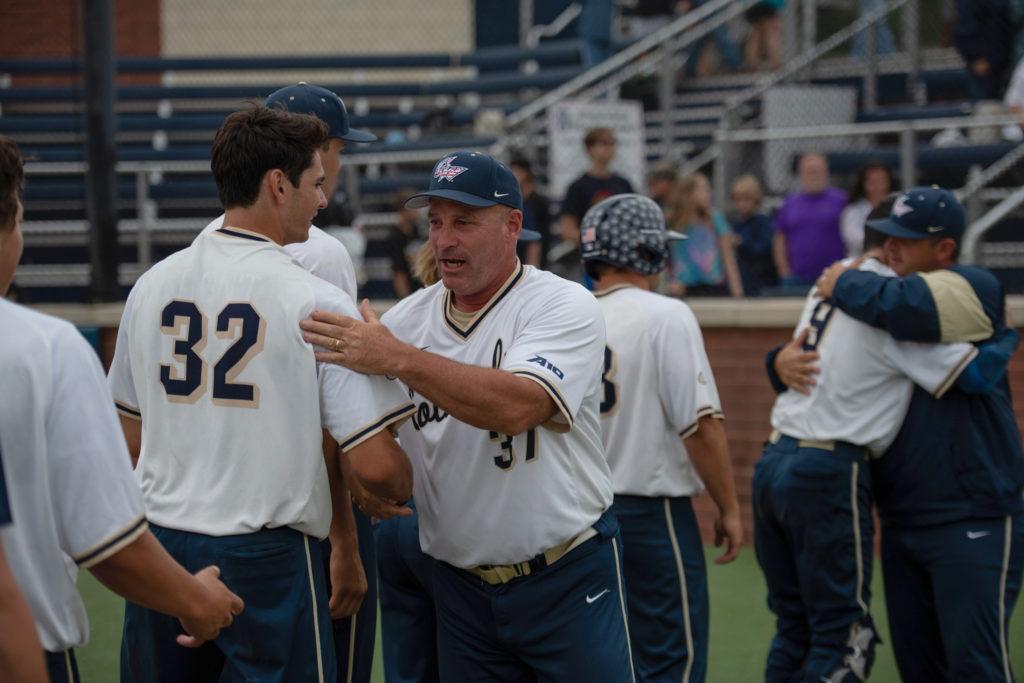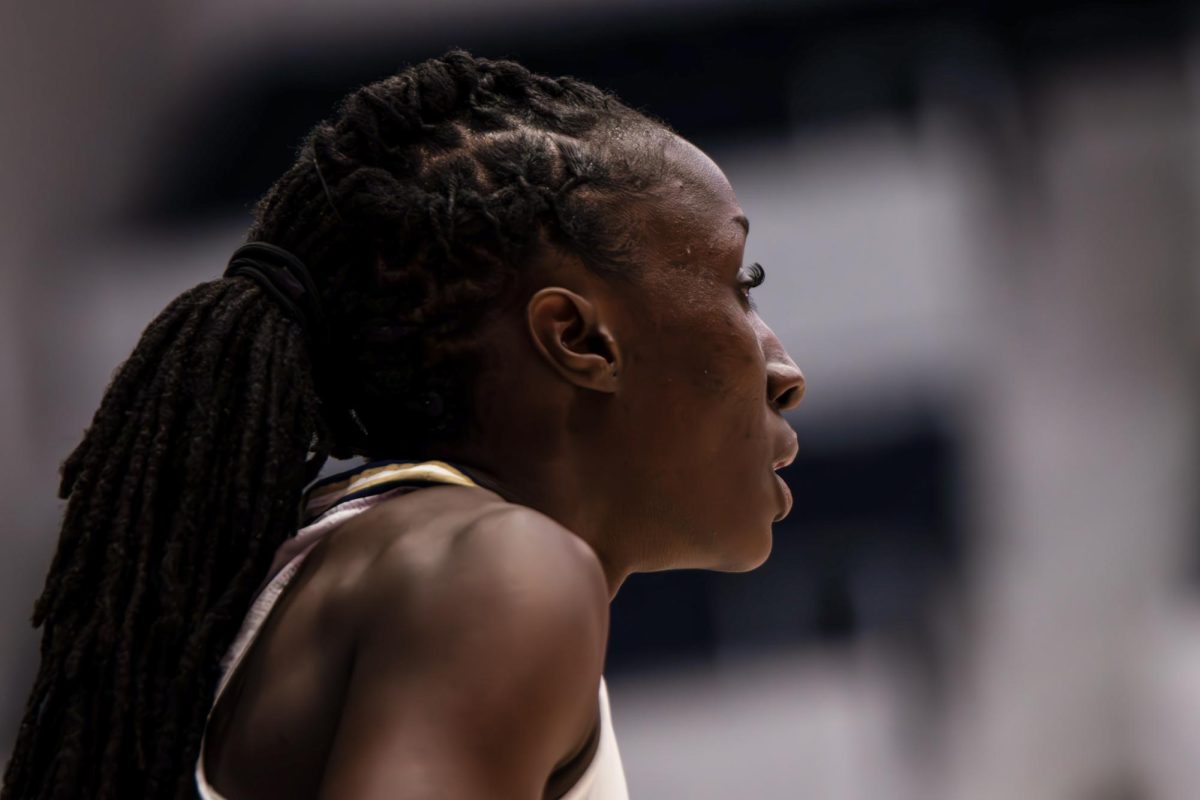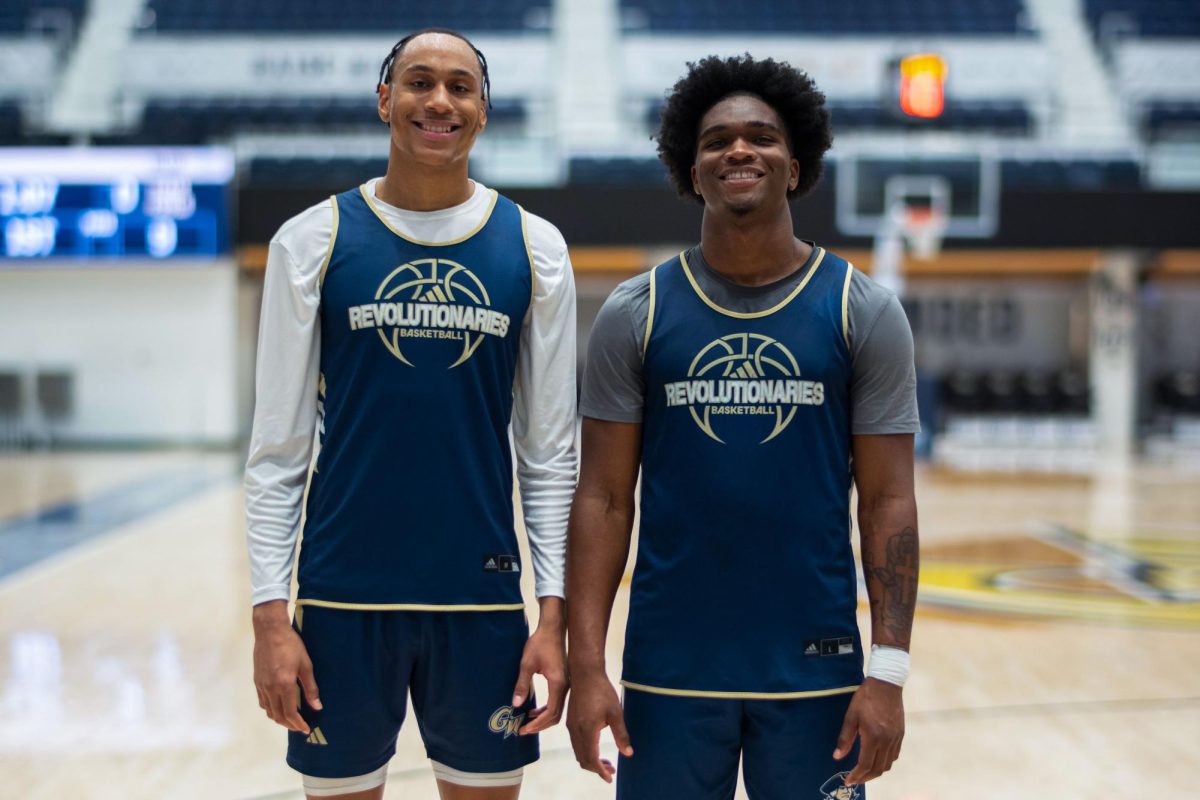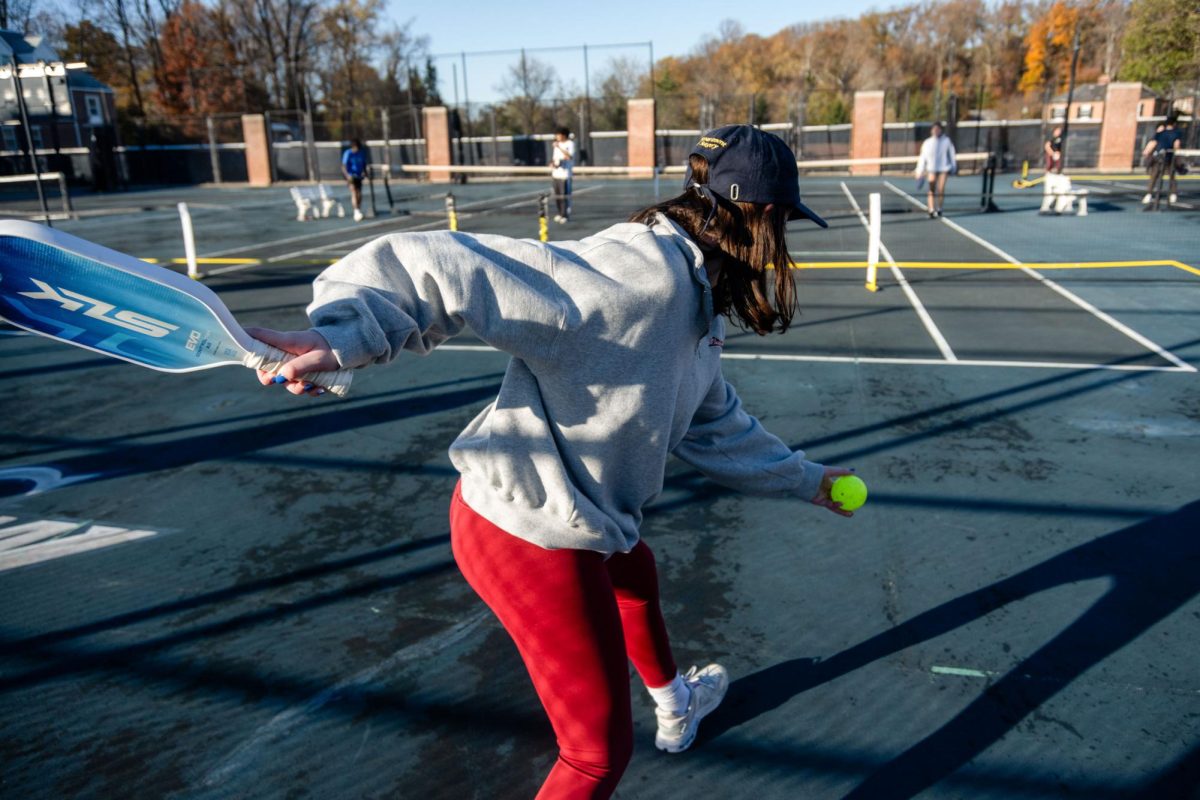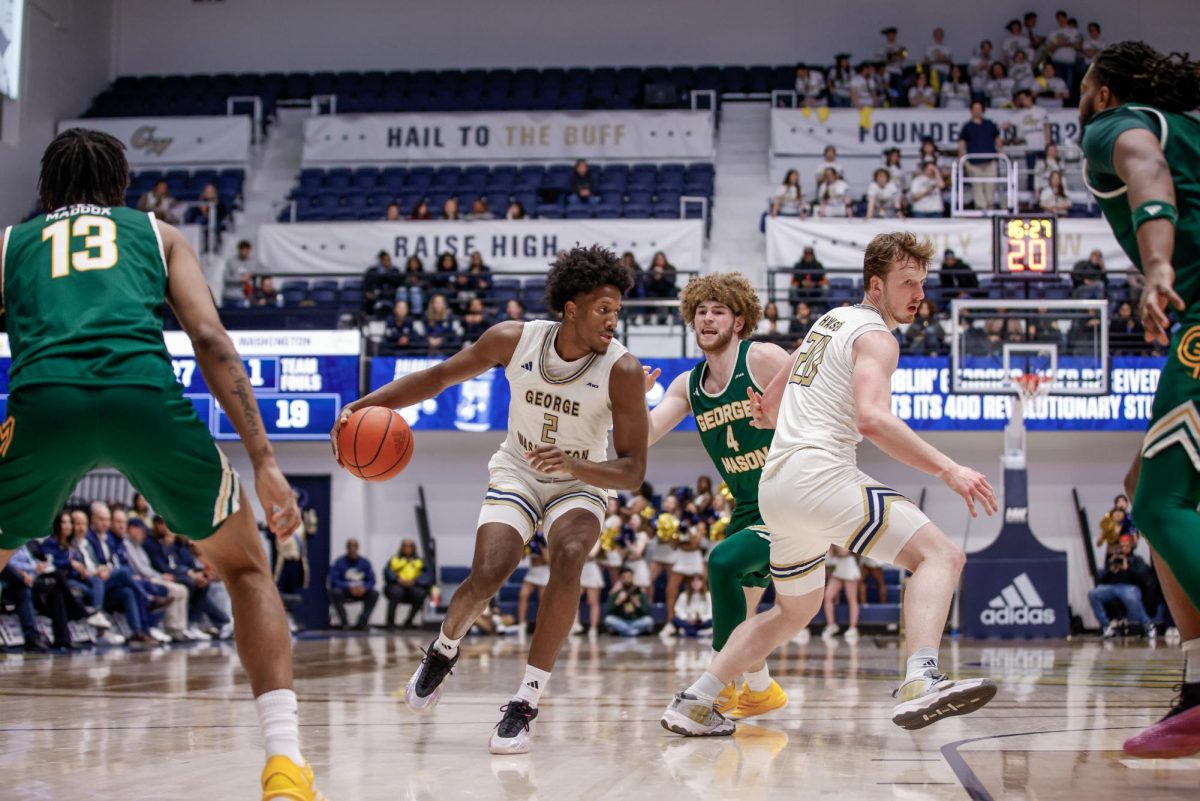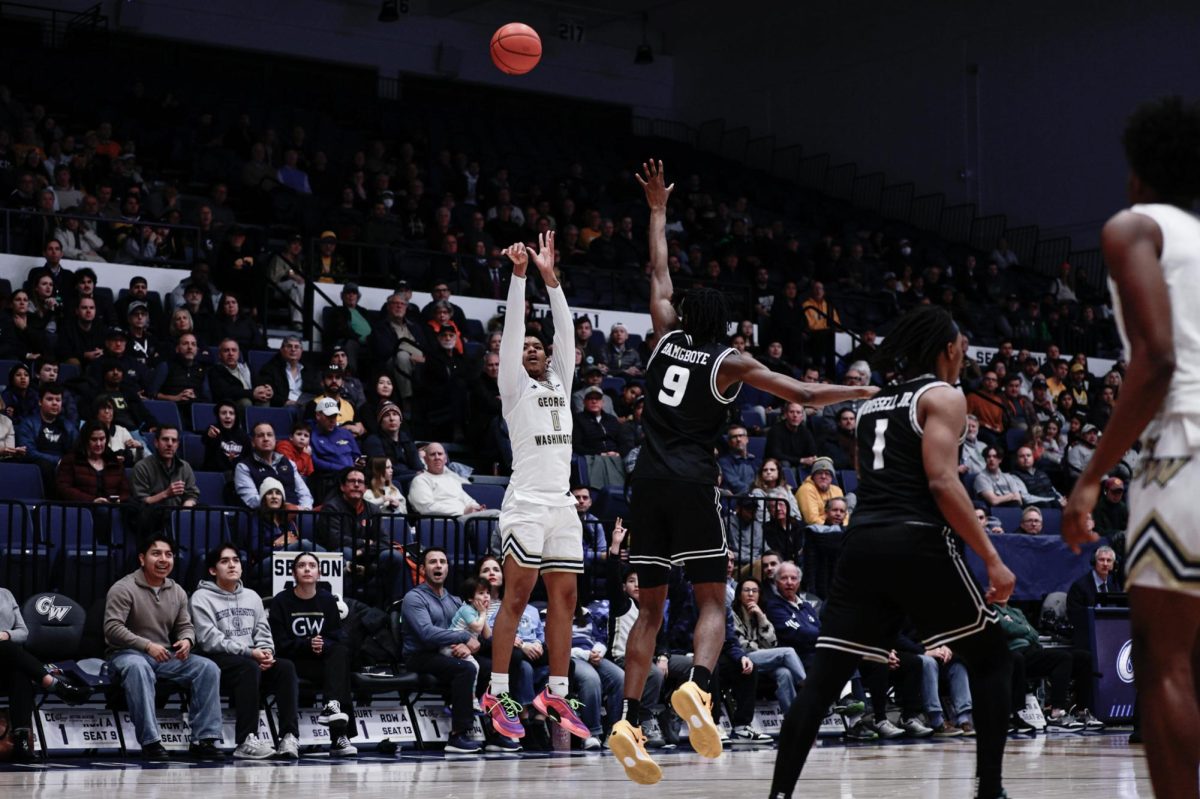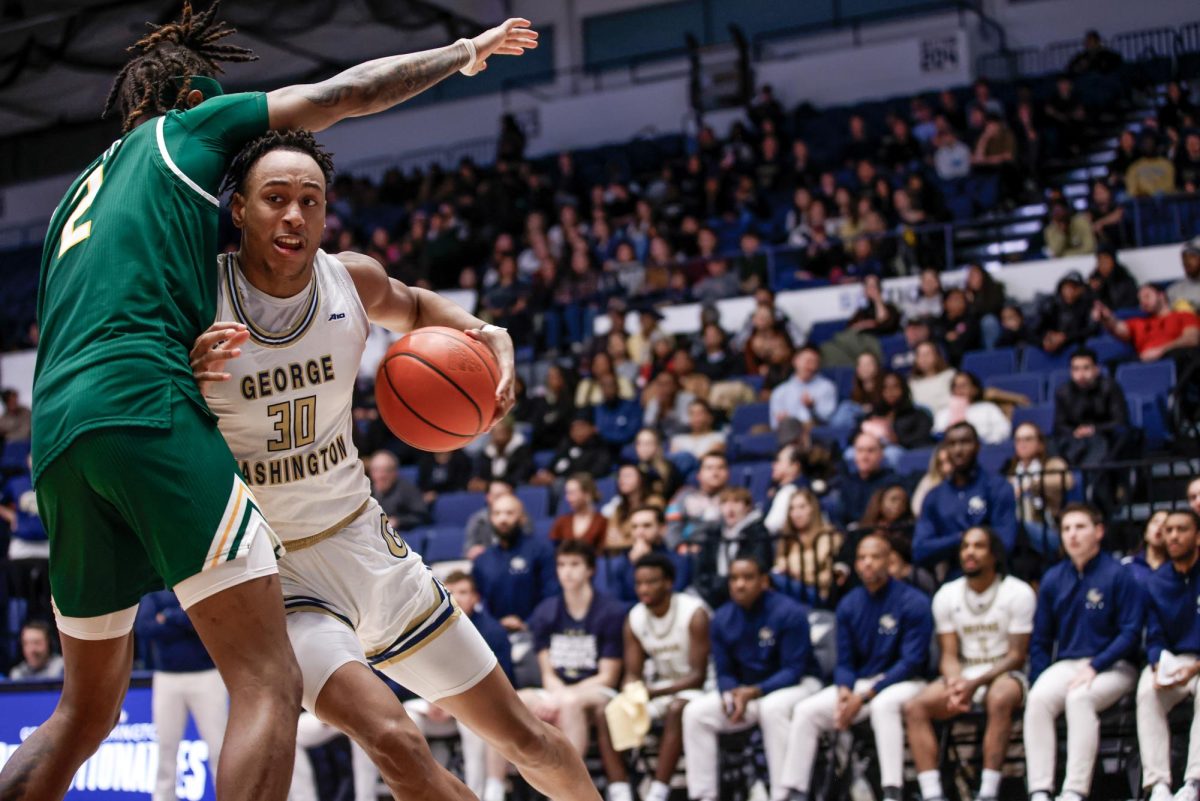When baseball head coach Gregg Ritchie and men’s soccer head coach Craig Jones were at GW in 1999, Ritchie was being inducted into the GW Athletic Hall of Fame and Jones was wrapping his senior season as a Colonial.
Both were pursuing careers outside of GW athletics, but 13 years later, the duo would return to lead their former programs.
Ritchie and Jones have headed their respective programs for eight seasons and are currently the only head coaches at GW to also have competed as Colonials. The duo said returning to their alma mater gave them a different perspective of the program and provided them with a network of former players and coaches.
“Part of the move I made coming back to GW was it created a balance in my life,” Ritchie said. “It made me a better person, a better man, a better father, a better husband, a better coach.”
Ritchie played as an outfielder and pitcher for the Colonials. He batted .492 in the regular season of his final year, the second-highest batting average in the nation, while also earning a 6-3 record on the mound with a 1.91 ERA. His efforts earned him Atlantic 10 Conference Player of the Year.
He was drafted in the eighth round by the San Francisco Giants in 1986 and played in the Giants and Texas Rangers minor league systems, reaching Triple-A level, until 1995.
Ritchie went on to become a hitting coach in the Chicago White Sox minor league system for a decade before taking the same position with the Pittsburgh Pirates in 2010. Ritchie said it was a difficult decision to leave the MLB, but the opportunity to replace Steve Mrowka, who was fired after the 2012 season concluded, was enticing because he would be closer to his family and represent GW again.
“When GW came up, I had to now consider the fact that it was my alma mater,” Ritchie said. “It was something I think anyone would say that would be a really awesome thing to do to coach at your former college. On top of that, it was family driven. I have four kids and my wife had sacrificed for so long and quite honestly, I didn’t know my kids well enough.”
In 2012, he led the program to its first Atlantic 10 Championship playoff berth since 2006 and was named A-10 Coach of the Year.
Ritchie said GW Hall of Fame coaches, like Mike Toomey and John Castleberry, were “second fathers” to him. He added that he wants to foster a similar culture with his players and has built his coaching philosophy around four tenets: care, trust, performance and building relationships.
Both Jones and Ritchie said they keep in contact with many of their former teammates. Jones said he crosses paths with some of his local teammates and keeps up with others on social media.
“There’s obviously some local guys I keep in touch with,” Jones said. “We’ve run into each other, certainly the local guys cross paths.”
Jones, a Wales native, came to the United States in 1995 to play for the Colonials. Jones decided on GW because of its location in D.C. and its reputation of having a large international student population.
He said the move was a “shock” because the team did not have on-campus facilities. A soccer field was added to the Mount Vernon Campus in 2001, two years after Jones had graduated. In his time at GW, Jones accumulated a total of 12 goals and four assists, starting in 62 of his 63 matches.
“It was strange coming over from playing at a high level to get to college and there’s no field, there’s no practice field,” Jones said. “It was a little bit of a shock, but we made the best of it and did all we could to try and be successful.”
After testing the semi-professional waters in Europe, he made his way back to the DMV and began working as a coach year round. Jones came back to GW when he rejoined the men’s soccer program as a volunteer assistant in 2002. He was promoted to an assistant coach in 2009 and moved up to head coach in 2012 after all-time wins leader George Lidster retired.
Jones said he has worked to bring mental health awareness and training to his program and end the stigma surrounding mental health challenges, resources that weren’t widely available when he played.
He organized a mental health training for his team back in September, becoming the first squad in the District to receive a certification in mental health training from Let’s Empower, Advocate and Do.
“When you look back and you think about players you played with, whether it’s performance anxiety, whether it’s some of the stuff they dealt with off the field, I think if there were more resources at the time and there wasn’t such a stigma, I think guys would have had a much better four years,” Jones said.


